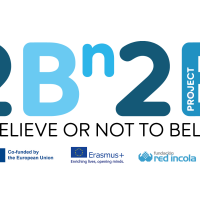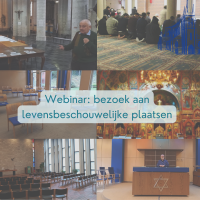There is much reason to despair. Social fragmentation, excessive individualism, global and local competitiveness, disengagement, utilitarianism, feverish consumption, instrumentalization of beauty and goodness for economic purposes: these would remain very abstract concepts indeed, if the people engaged on the ground did not know that underneath these words many forms of human suffering are hidden, such as unemployment, work-related depression, poverty, social and cultural exclusion and deepening inequalities.
But then, there is also reason for hope. People’s willingness to resist the neoliberal (dis)order used to be confined to places of “specialized discontent” with its usual suspects (e.g. young alterglobalists, trade unionists and radicals). Today there are heartening signs of defiance and resistance on less expected places.
Even within the interfaith movement, religious and non-religious people alike are becoming aware of the incompatibility of economic strife and selfishness versus the transcendental call for solidarity, equality and care for the earth.
Transcendence can take multiple shapes.
One thinks spontaneously of its vertical, God-oriented dimension, a truth elevated above our heads that guides our choices and actions to which we trustfully abandon ourselves , precisely because we feel they do not originate from us.
But there is also a horizontal sense of transcendence, and its call to solidarity and self-sacrifice can be as compelling as the one that emanates from its “heavenly” counterpart.
Take a non-religious person who feels the imperative urgency of involving the next generations and the future of the planet in any present economic decision-making. He might confine his understanding of the so-called “after-life” to the upcoming life of future generations. No God or personal eternity could fit in his vision of reality. But even this earthbound interpretation of the after-life, as imminent as it seems to be, carries a notion of truth that emanates from the outside and is compelling enough to make him row against the everyday current of short term certainties.
So let’s be candid: no religion, no spirituality, no conviction can take at face value a system of production and consumption like neoliberalism that has far reaching anthropological implications and is firmly rooted in a particular and all-encompassing worldview notwithstanding its humble claim of being the opposite of an ideology. “We only formulate some unavoidable problem-solving answers to some economic challenges”, so the neoliberal story goes . In reality, this worldview generates poverty, inequality and ecological disaster, reduces men and women to the state of homo economicus, denies or instrumentalizes their religious and spiritual longing and jeopardizes the very life of upcoming generations.
And let’s put it even more bluntly: without religious, spiritual or convictional truth that carries us above or beyond the issues of the day, no long-term resistance against the contemporary economic dictatorship is even conceivable. We should never lose sight of the fact that the immanent, truly existing world grants an inestimable advantage to those who want to keep it unchanged: it exerces its enormous authority on people’s minds solely by virtue of its monopoly on manifest reality that seems to exclude the very possibility of another world.
Each second of his life an average city-dweller smells, tastes and feels the facts and things of neoliberalism as they expand their realm in the places where he works, buys, travels, thinks, prays and relaxes.
How on earth could he escape of his own bat this airconditioned nightmare, unless there was some truth outside of him, pulling him out of immediate reality, and helping him to reconquer his lost ability of saying “no” and “yes”?
If the idea of “another world is possible” has any meaning, then only because that other world already exists as a truth beyond doubts.



